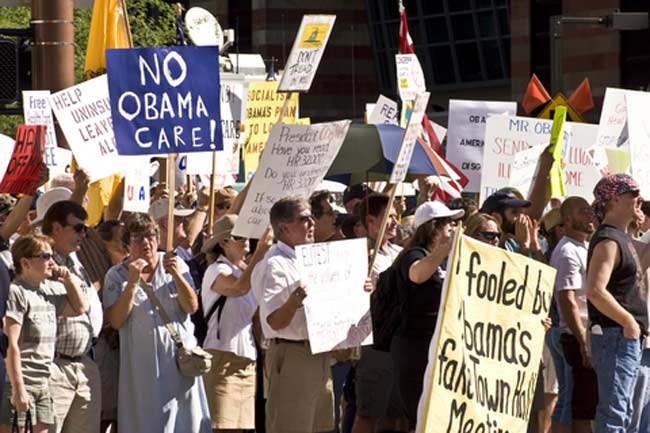Why Can't We All Just Get Along?

Get the world’s most fascinating discoveries delivered straight to your inbox.
You are now subscribed
Your newsletter sign-up was successful
Want to add more newsletters?

Delivered Daily
Daily Newsletter
Sign up for the latest discoveries, groundbreaking research and fascinating breakthroughs that impact you and the wider world direct to your inbox.

Once a week
Life's Little Mysteries
Feed your curiosity with an exclusive mystery every week, solved with science and delivered direct to your inbox before it's seen anywhere else.

Once a week
How It Works
Sign up to our free science & technology newsletter for your weekly fix of fascinating articles, quick quizzes, amazing images, and more

Delivered daily
Space.com Newsletter
Breaking space news, the latest updates on rocket launches, skywatching events and more!

Once a month
Watch This Space
Sign up to our monthly entertainment newsletter to keep up with all our coverage of the latest sci-fi and space movies, tv shows, games and books.

Once a week
Night Sky This Week
Discover this week's must-see night sky events, moon phases, and stunning astrophotos. Sign up for our skywatching newsletter and explore the universe with us!
Join the club
Get full access to premium articles, exclusive features and a growing list of member rewards.
The health care bill may be passed, but the road to reform certainly painted a polarizing picture of America. From a six-hour summit that failed to sway a single Republican, to shouts of "baby killer" and Tea Party protests, politicians and the public seemed to be from different planets.
Psychologically speaking, perhaps they are, say experts, who weigh in on the reasons behind the seemingly endless acrimony these days over a slew of issues, from gay marriage to abortion.
The reasons are many-faced, involving deep-seated personality differences, contrasting moral views, polarized political parties and today's 24/7, tell-it-all-in-great detail media, all of which prevent liberals and conservatives from seeing eye-to-eye, experts say.
And at the end of the day, these divisions could explain why we can't all just get along.
Conflicting morals
Before they even get to the issues, liberals and conservatives are already starting off on the wrong foot for bipartisan agreement. Fundamental differences in morals and personality, paired with emotion-driven logic lead to a basic disconnect between the political bents.
Jonathan Haidt of the University of Virginia and his colleagues have pinned down five basic "moral triggers," or the factors people use to judge right from wrong and that have evolved in human societies. Different cultures and even individuals place more emphasis on certain triggers compared with others.
Get the world’s most fascinating discoveries delivered straight to your inbox.
In a broad sense, they boil down to:
- Harm/care: People are sensitive to suffering and have negative feelings toward those who are harmful and cruel. They value kindness and compassion.
- Fairness/reciprocity: A history of cooperation means humans have evolved a sense of fairness and reciprocity, leading to altruistic actions.
- Ingroup/loyalty: People place moral value on those who do what's good for the group; are loyal to the group; and dislike disloyal members.
- Authority/respect: Humans tend to respect authority and tradition.
- Purity/sanctity: The idea that we view our bodies as sacred. This idea ties into religious views about the body and human actions.
Studies have shown that liberals tend to care only about harm and fairness when considering whether something is moral or not, said Peter Ditto, a professor of psychology and social behavior at the University of California, Irvine, who is involved with Haidt's research. In contrast, conservatives have a more traditional moral structure, and tend to care about all five morality factors, he said.
"So that's where a lot of the problems come in, is that the things that really bother conservatives don’t bother liberals very much," Ditto said. "And the two groups don't understand each other's morality very well."
Take gay marriage, for example: "From a liberal standpoint, gay marriage isn't a problem, it doesn’t harm anybody, and it's only fair that gay people be allowed to be married just like straight people can," Ditto said.
But for conservatives, gay marriage goes against the traditional idea of marriage, and so presents a real moral problem, Ditto explained.
Twisting the facts
These basic moral differences can then go on to drive the biased perception of facts, Ditto said. Often people don't agree on an issue, because they interpret — or misinterpret — the facts differently, or they simply ignore facts that don't fit their view. People on both sides of the political aisle do this, studies show, and so even what might seem like simple notions of "right" and "wrong" are judged based on altered realities by both parties.
"People process information, and it's biased to supporting their moral ideological view," he said. "And what you end up with is these sort of radically different perceptions of fact, so that it's not like they're just arguing about morals anymore; they perceive the world completely differently."
This bias worldview might have its roots in emotions as well as morals.
"You tend to form emotional ties to the belief that you hold," said Steve Hoffman, a professor in the Department of Sociology at the University of Buffalo in New York. "And so you seek out that information, or those convictions, and those people that convey the convictions that you think you already have."
Psychology research has also identified personality differences that might lead people to identify as either liberal or conservative.
"If you have a high need for certainty, you like things to be very sure or certain, [and] if you have a high need for order, if you tend to see lots of threats and danger out in the world, you're more likely to identify as a conservative," said Christopher M. Federico, a professor of psychology and political science at the University of Minnesota.
On the other hand, people with a lower need for certainty and order and who are less likely to see the world as a threatening place are more likely to identify as liberal, he said.
In other words, ideological sorting is not meaningless. "It's not that you like Coke and I like Pepsi, or something like that; it's something that seems to go much deeper, and it's not psychologically arbitrary so to speak," Federico said.
Polarized parities
So liberals and conservatives are different down to the core. And perhaps that's how it's always been. But are we really more partisan today than in years past? The answer depends on how you define "we."
If you're talking about the American public at large, the answer is not so clear.
For instance, the number of Americans who identify as either Democrat or Republican has remained relatively constant over the last 25 years, said Morris Fiorina, a professor of political science at Stanford University. And the number of Independents hovers around 30 percent to 40 percent, he said, suggesting that most Americans actually have moderate views.
However, gauging the extent of American partisanship remains difficult, Hoffman said, and there are some political scientists who would say America is more partisan today, he said.
What is generally agreed upon, however, is that those who are actively involved in the Democratic and Republican parties seem to have become more divided in recent years.
"If you were to randomly draw a Republican and a Democrat from the population today, they're likely to be further apart than if you randomly drew a Republican and a Democrat from the population 40 years ago," Fiorina said.
In other words, each party is more ideologically homogenous, yet both are at more extreme ends of the spectrum, University of Minnesota's Federico said. "You don't see too many liberal Republicans anymore or as many conservative Democrats," as was the case about 50 years ago, he said.
Case in point, no Republicans voted for Obama's health care bill in either the House or the Senate.
Added on top of this division is the fact that those who are more partisan are the ones who are most engaged in politics, according to Federico.
"The people who are most likely to have an impact on politics, to get involved, to go to marches, to vote, to pay attention to the political media, are those that are especially undergoing all these processes that make people more partisan in a sense," Federico said.
These extreme voices on the left and the right help to fuel the perception that America as a whole is more partisan, Fiorina said.
"The people who are the public face of politics, who get on TV and who are on all the talk shows, and so forth, they are not only highly partisan, they are the most partisan of the partisans," he said.
Same divisions, new media
Speaking of media, experts agree part of the blame for American partisanship, or at least the perception of partisanship, rests with the endless number of politically biased TV and radio shows, newspapers and Internet sites.
While people have likely always had differences in their moral beliefs, and had a tendency to take a skewed view toward the facts, today's media allows such distorted notions to be reinforced, said Ditto, of the University of California, Irvine.
"If I'm a liberal I can go to MSNBC, I listen to NPR, read liberal magazines, I read the Huffington Post," Ditto said. "If I'm a conservative, I go to Fox News, I read Michelle Malkin, I listen to Rush Limbaugh." (Malkin is a syndicated columnist, and Limbaugh is a radio host and conservative political commentator.)
"The two sides come in and they just fundamentally don't agree on even the most basic facts, because they want to believe certain things, and they're reinforced [by the media]" Ditto said.
Hoffman agrees.
"There is this kind of rhetoric of absolute conviction, and it's either kind of a right wing conviction or a kind of liberal conviction," he said. "What effect that has, is that it both exacerbate the sense that we live in an increasingly polarized world, and [media pundits] also appeal to people's emotions and their kind of emotional processing," Hoffman said.
The media and the Internet likely also play a role in fueling the spread of radical beliefs. For instance, a recent poll, conducted by Harris Interactive, found that 32 percent of those polled believe that President Obama is a Muslim, and about a quarter of Republicans in the poll think he may be the antichrist. The poll was widely criticized for not properly representing the public, but Harris pollsters stood by its validity. Either way, it illustrated a big gap in how the left and the right view things and how those views can be supported by the media.
"The media give you the support that you need, and you're able to go and find those things, whereas in the past, it was much harder to find something that would support your beliefs, particularly crazy ones," Ditto said.
While many extreme beliefs today, like those expressed in the Harris poll, seem to be coming from the right wing, the same biases also occur on the left, and at another point in history, extreme leftist views might have been more ostentatious.
"To a certain extent the same thing happens on the left, and maybe at different historical times it would be more prominent on the left as well," Ditto said.

Rachael is a Live Science contributor, and was a former channel editor and senior writer for Live Science between 2010 and 2022. She has a master's degree in journalism from New York University's Science, Health and Environmental Reporting Program. She also holds a B.S. in molecular biology and an M.S. in biology from the University of California, San Diego. Her work has appeared in Scienceline, The Washington Post and Scientific American.
 Live Science Plus
Live Science Plus










